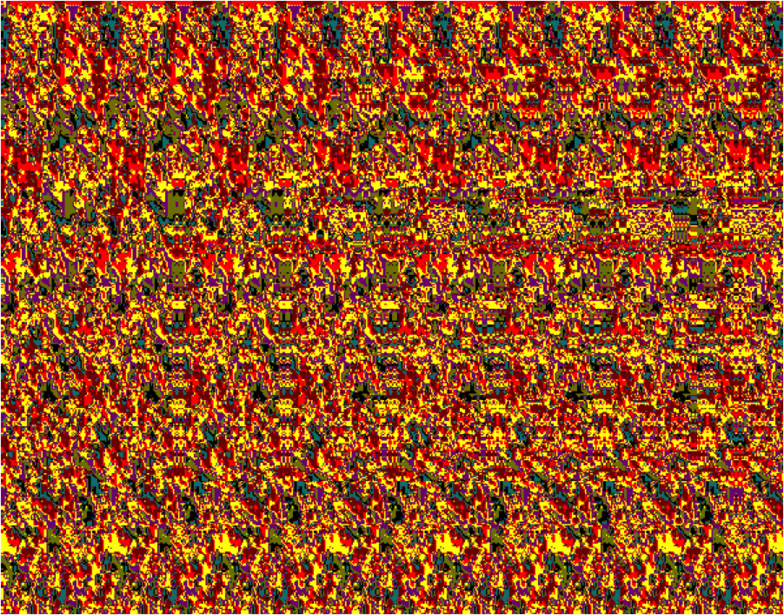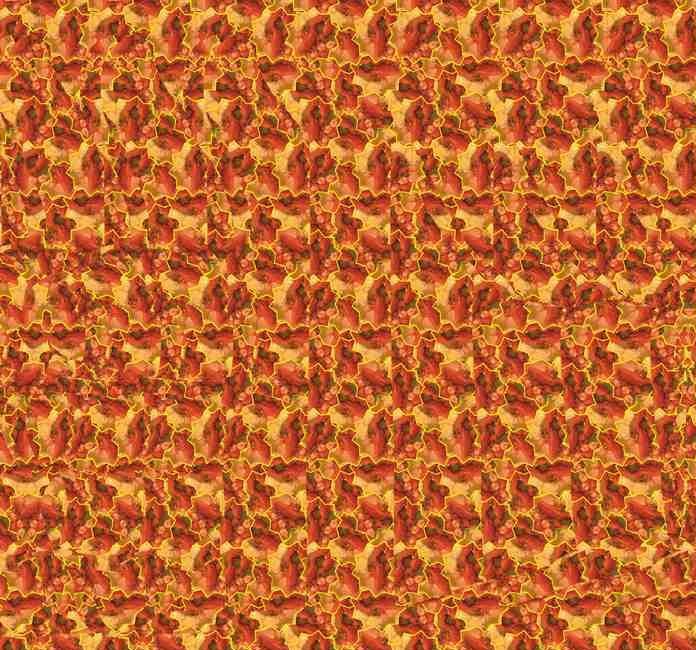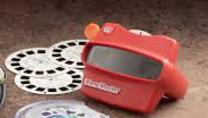Name of Contact Person
(800) 555-5555
www.partnerwebsite.com
Two Witnesses
A foundational principle of justice in the Torah is that a matter in Israel cannot be established without at least two witnesses. (Deuteronomy 17:6; 19:15; this was renewed in 2 Corinthians 13:1) Why?
Maybe a key to the answer lies in the two “witnesses” YHWH has placed within each of us. That’s right; they are our own two eyes.
If you ever paid attention to that “flashing-light” game you played as a child where you closed one eye and opened the other, then closed it and opened the first again, alternating back and forth between the two, you noticed that the scene shifted. The object(s) you were looking at “jumped” from side to side. Of course, they didn’t move; it was that you were actually seeing from two different angles.
If you looked carefully enough, you would see that a few things you could see from one of the angles are in fact obscured from the other viewpoint, and vice versa. And you would also discover that each of these views is two-dimensional, with any depth only visible if you move your head around like a cat until it becomes obvious which of the things you can see are behind others.
When you open both eyes again, the view you have is not quite the same as either of the views you had with just one eye. Arthur Custance wrote at length about how each half of the brain sees something different, but the mind somehow synthesizes them—and it works! The fusion of the two gives depth perception, and you can walk—or drive—without bumping into the things which you previously could only tell how far in front of you they were by guessing from their comparative size.
When I was a child there was a device called a “View Master” that in the same way synthesized two photographic transparencies, resulting in a picture with depth that could never be achieved on paper, much like the earlier opaque stereopticon (see photo at left).
You can see how this principle applies to justice in the courts. Person “A” saw an event, so he thinks he knows what occurred. But someone across the street could see something that was going on around the corner from where person “A” could see, which affected the outcome, but person “A” knew nothing about it. And the same probably held true for person “B”. And of course, any third—or fourth or fifth or twentieth—witness could add texture and the judge could come a lot closer to getting the “whole picture”—much like a hologram.
But this way of determining truth can go far beyond the context of a courtroom. Batya Wootten has applied this principle to the two houses of Israel: “Long ago, the Father divided Israel into two houses, Ephraim (Israel) and Judah. As His two witnesses, He sent them in different directions to serve two purposes, to establish His immutable truths of Law and Grace.” (Summary blurb of the book, Who Is Israel?)
Remember, it was YHWH’s idea to divide Israel into two major parts. (1 Kings 12:24)
But why would He do that? Mrs. Wootten explains that it was because (after the corrective aspects of our exiles had run their course) we had two different tasks to accomplish. We all know how much easier it is to get a job done if we don’t have distractions, whether in terms of noise or too much information being thrown at us that is irrelevant to what we have to get done. By giving each “half” of Israel different emphases on which to focus, YHWH streamlined each of our callings by temporarily removing from each one’s job description some aspects of His purpose, creating a “division of labor”. The two Houses were kept separate for a reason: each had something to preserve that had to be well-guarded. For one it was the fact that YHWH has a standard; for the other it was that YHWH’s mercy goes much further than anyone could ever imagine, overcoming even the seriousness of a penalty He enacted, because He had a solution even for that.
The problem was that each, in its objective form, held seemingly-irreconcilable differences from the other’s message (like the angle from which each witness saw the “crime”). Which is right? Neither, in one sense, for both had taken things too far in the process of trying to build a complete system out of half of the truth, thinking it was the whole. Especially as both moved out of range of the best view, and in opposite directions, each one’s view had blind spots that blocked the view of things that are really important—like the Torah or the Messiah. Could either side be complete without some of these big aspects of truth?
Yet YHWH has shown strong support for both groups. Who could deny the miracles that enabled Judah (Yehudah in Hebrew) to both survive the exile intact and be revived as a nation back in the same Land? Paul tells those on the “other side of the aisle”: “Indeed, in terms of the Glad News, they are ‘enemies’ for your benefit, though in regard to [being YHWH's] chosen [people], they are beloved because of the promises YHWH made to the patriarchs, because [both] the free gifts and the calling of YHWH are irrevocable.” (Romans 11:28-29) Other apostles said similar things about the group that later mutated into what are now called “Christians”, but knew themselves only as Gentile believers in the Jewish Messiah, for YHWH was doing great works among them as well. (Acts 10:45-11:18)
So somehow both are right, once each is seen in the right light--in light of the other. (Neither is judged by the other but by the Master, who upholds each and is able to make us stand, per Romans 14:4.)
Mrs. Wootten continues: “Now, in these last days, He would have [the two witnesses] come together and confirm His truth in the earth.” In our day, He is re-merging the two eyes’ views, and through the careful combining of the right aspects of each, a bigger, more balanced picture emerges. The synthesis of the two witnesses will be something far better than either side has ever been able to elucidate alone.
Those who navigate the narrow path that runs between the two can see—and draw--from both perspectives and begin to get the whole picture. Those who are blessed to again, as in the first stage of reconciliation, hold to both “the commandments of YHWH and the testimony of Yeshua” (Revelation 12:17) are finding that the recombining of long-separated truths satisfies our quandaries and sets us free from either side’s negative extremes (often based on overreactions to the other side’s polemics.)
The truth is in the paradox of the two things that seem mutually-exclusive, but when brought together in the right way, prove to be not only compatible but essential to one another’s survival. When we see the nuances of how the star witnesses’ contributions do mesh, YHWH’s perfect foresight will amaze us.
Paul captured the essence of this in Romans 11. Speaking this time of Yehudah, he says, “By means of their ‘slipping’, salvation came to the Gentiles, in order to ‘provoke [Yehudah] to jealousy’. But if their 'slipping' [results in] the world's enrichment, and the diminution [of their status results in] abundance for the nations, how much more [does] their replenishment? … Because if their being cast out is [the opening] for the [rest of] the world to be reconciled, what [will it be] when they are received [back], but life after having been dead?” (vv. 11, 12, 15)
He usually couches it in terms of “Jews and Gentiles”, but mixed in among every Gentile nation were remnants of the Northern Kingdom of Israel, a.k.a. Ephraim—who had its turn to be “cast out” long before Yehudah did. Yet this other part of Israel is an entity to which all the prophets made promises, and many of them are claimed and clarified in the New Testament. Thus we hold that what is called the New Testament is at least the first stage of the “Renewed Covenant” promised to not only the House of Yehudah but also the House of Israel (which had dissolved as such in 722 B.C.E.). There has to be some entity in the world again for these promises to land on. That, Paul says, is the reason “Elohim has given [Yehudah] a spirit of slumber, eyes that cannot see, and ears that cannot hear.” (Romans 11:8)
That may not sound like the kindest thing to say, but when else do we hear about someone being put into a deep sleep by Elohim? Right in the Torah itself, YHWH brought such a slumber over Adam like anesthesia so that He could perform surgery! (Gen. 2:21) And what was the result? Something negative? Hardly. It was the helper who YHWH said would in some sense oppose him. Yet, like a prop leaning against him, that “opposition” would support him. That, I think, is the kind of division YHWH made between Yehudah and Israel.
Was either Adam or Hawwah complete after they were separated? Well, they each could have lived a full lifetime alone, if it came down to that; they were not impaired to the point of being totally disabled. It might be “enough” to live with just one side of the coin. But despite all the fun we have at Passover with the song, “Dayenu”, would it really have been enough if we had been given some of Israel’s legacies, but lacked others? In survival mode, maybe—and that’s exactly what it was for a long time. Each House was running with only part of the puzzle; if we really want that “life more abundantly” that Yeshua came to bring (Yochanan 10:10), ultimately, enough isn’t really enough:
“Two are better than one; because… if they fall, the one will lift up his fellow: but woe to him who is alone when he falls; for he has no one else to help him up. Again, if two lie down together, then they can [keep each other] warm: but how can one stay warm alone? And if someone can prevail against [one person], two can withstand him.” (Qoheleth/Eccles. 4:9-12) One could also be an undercover ally who could keep something important safe in case the other was attacked. He could escape with it or stay hidden and preserve the evidence while the other took the flak. One could even hide his descendants in the other in case he was killed in battle.
Yes, Adam and Hawwah were separated for the sake of coming back together in a way YHWH thought was much better than having been just one entity the whole time. They could now have a kind of fruitfulness neither alone had ever known before. And the prophets say that the same is true of Israel.
To Ephraim it is said of Yehudah, “You have been given [an occasion for] mercy through their unbelief; they too have now refused to believe [precisely] so they in turn may receive mercy through the very mercy you [can now show]. Thus, YHWH has included everyone together in unbelief, in order that He might show mercy to us all!” (Romans 11:30-32)
His final summary of this discourse is the clincher: “Oh, what depth [there is] to the wealth of both YHWH's wisdom and His knowledge! How unsearchable are His judgments, and His ways beyond tracing out!” (11:33) Yes, Paul had “depth perception”! He perceived the depth that can only be seen when the two Houses are brought back to working together! It’s what some insightful people have called “creative tension”. Only by grasping both “horns of the dilemma” can we string them with the proper tension to make a harp that produces beautiful tones!
How did Yeshua describe that “holding to one and not letting go of the other”, as Qoheleth/Ecclesiastes put it? In a parable, as usual:
“Every expert in the Torah who is discipled into the Kingdom of Heaven is like a person—the ruler of a household—who brings out from his storehouse [things both] fresh and ancient.” (Matithyahu 13:52) New wine and vintage, both time-tested tradition and valuable applications of it to new situations.
That “expert in the Torah” sounds a lot like Paul himself, doesn’t it? But that word for “person” means “a human being in general”, the equivalent of the Hebrew word “adam”, which initially incorporated into one body both male and female, before YHWH divided the two aspects of humanity into two separate bodies.
Is one of them now better than the other? No; they have different functions. Without which of the two parts could there be fruitfulness? One may get to have the last word since things often end up requiring a decisive verdict, but what executive decision will not be resented if the other’s opinion, intuitions, insights, and concerns are not taken into account? As Michael Card sings, YHWH did give us a “final word” in Yeshua. But on what was his decisive victory based? “It is written…” (Matithyahu/Matthew chapter 4) The solid, unmoving foundation of the ancient, tried and true Torah gave him firm footing in the harshest of circumstances and kept his focus clear and accurate.
So yes, both narratives can and must fit together as we face a similar “time of temptation that will come upon the whole world”. (Revelation 3:10) We will need every tool and weapon that both sides have forged from the raw materials give them, and the point is not to use them against each other, but bring them to each other’s aid.
The prophets give us hope: “The descendants of Israel will come, they and the descendants of Yehudah together, walking and weeping as they go, and YHWH their Elohim they will seek.” (Jeremiah 50:4)
That is the key. After Qoheleth said, “two are better than one”, he added, “a threefold cord is not quickly broken.” (4:12) Sometimes two witnesses are not enough; for especially-difficult cases, Torah says we need three. It is hard for three liars to agree about everything, but if “for every two Israelites there are at least three opinions”, how strong is the testimony of three witnesses who actually do agree!
But without YHWH—the factor we both have in common--as our Mediator, we would continue to beat each other to death or just stay away from each other and let the other go his own way. But that is not acceptable if we really want to overcome not just our own rift but the rift that goes all the way back to Eden—repairing not just the breach in Israel but the whole world, for Israel is just the prototype for that. If we recognize that YHWH loves our “rival” house as much as He loves us, and, like any parent, wants all His children to love each other, and make overtures to one another accordingly, Mal’akhi’s words can come true:
“Those who feared YHWH spoke to one another—[each] man to his fellow—and YHWH took notice and began to listen, and a memorial document was recorded in His presence for those fearing YHWH and for those who took His Name into account. And YHWH [the Master] of Armies says, ‘They will belong to Me for the day when I will prepare My specially-treasured possession, and I will have compassion on them’.” (3:16-17) YHWH was watching! He is the third witness that binds the other two together!
“In that day… Efrayim will not envy Yehudah, and Yehudah will not cause Efrayim distress.” (Yeshayahu/Isaiah 11:11-13)
Until then, our viewpoints may conflict, but if we all admit that we don’t have the whole picture, that humility becomes a first step to others being willing to risk sharing the pieces they can see from the angle that they do have—without being defensive and fearful of being run over roughshod by the other’s insistence on what he, too, did really see. If we let each other be the “eyes in the back of our heads”, we will not only truly “have each other’s back”, but can overcome each other’s blind spots and get to see the beauty of the composite.
A “good eye” is also a Hebrew idiom for being generous. Giving each other the benefit of the doubt is a big part of the patience needed for rapprochement after a long estrangement. Have you ever looked at one of those “autostereogram” pictures where a 3-dimensional image is hidden behind a complicated, repeating pattern? Sometimes you can stare until your eyes dry out and still see nothing. The key is to be patient, relax, get past the surface and look at it indirectly—and then suddenly, there it is! It almost jumps out at you once you stop over-thinking it and let your eyes take on another perspective. That’s a hard thing for many of us to do, and yes, “iron sharpens iron”; sometimes we have to be tough in our insisting on certain aspects of truth that we know for sure are true. But when I approach you, Yehudah, I must remember that I, Ephraim, need to be sharpened, too. Your experiences are things I have not known, and I have holes in my theology that need to be filled with things you have seen. So this will affect the attitude in which I approach you. I have something you need, and I hope to persuade you of that. But you also have something I need. That is why YHWH gave us different experiences and let us see from different angles. It is not an argument of right or wrong, but of, “How can we make these puzzle pieces fit together without forcing them in the wrong way? If this piece does not fit here, where does it fit?” There may be a few extraneous items that have been tossed into the mix that really aren’t part of the puzzle; such is our enemy, but remember, he is our common enemy. “Let the weeds grow until the harvest”, because we cannot tell which ones to toss out until the rest of the puzzle is together and we see there is no place for them; until then, set them aside, and work on the other pieces.
Again, Paul summarized this well in his pithy conclusion to 1 Corinthians 13: “We know in part…but when what is complete comes, the partial will be done away with… Now we see through a glass, dimly, but then face to face; now I have partial knowledge, but then I will know just as I am known. These three things remain: faith, hope, and charity (love), but the greatest of these is love.”
We won’t always be “on the same page”, but if we are “in the same book”—as all the tribes of Israel are—then we are brothers and sisters, even if estranged. Love makes the relationship more important than whether we agree on every detail.
And it is not only the love from our own hearts that we have to offer one another; that will eventually fail. But our Third Witness adds His love to the mix and pushes ours further than it could otherwise go, because He can act through us. If we open one door to Him and the other door to one another, we become a conduit to let His love flow. (Yochanan 15:1-5)
“The eye is the body’s lamp. If your eye is single”—and the term means “woven or braided”, i.e., working together, both eyes functioning as one undivided unit rather than each going their own way and giving us double vision—“then your whole body will be full of light.” (Luke 11:34) Selah.




